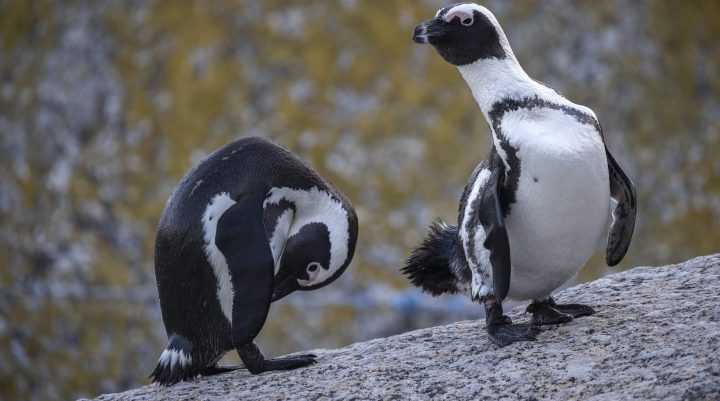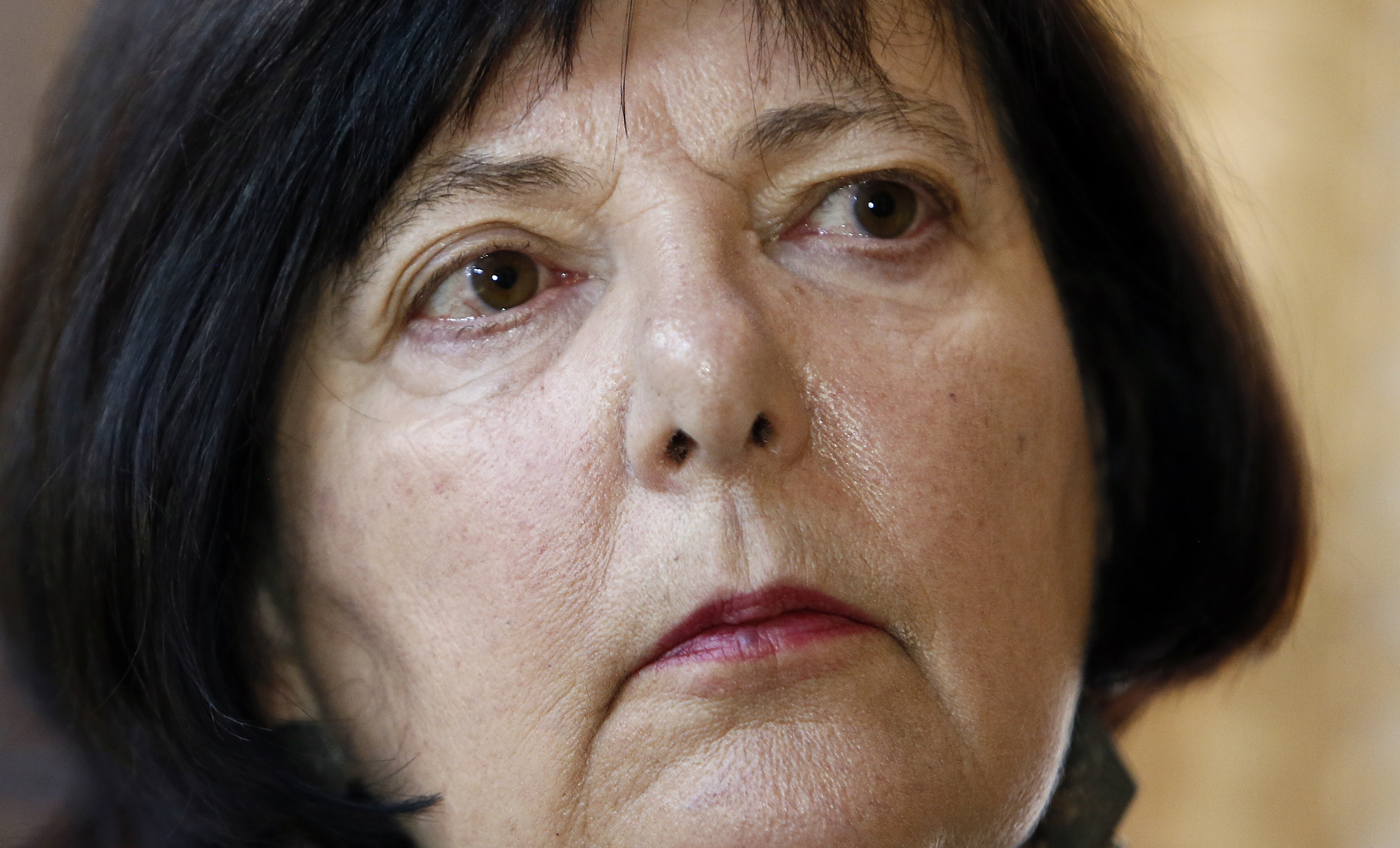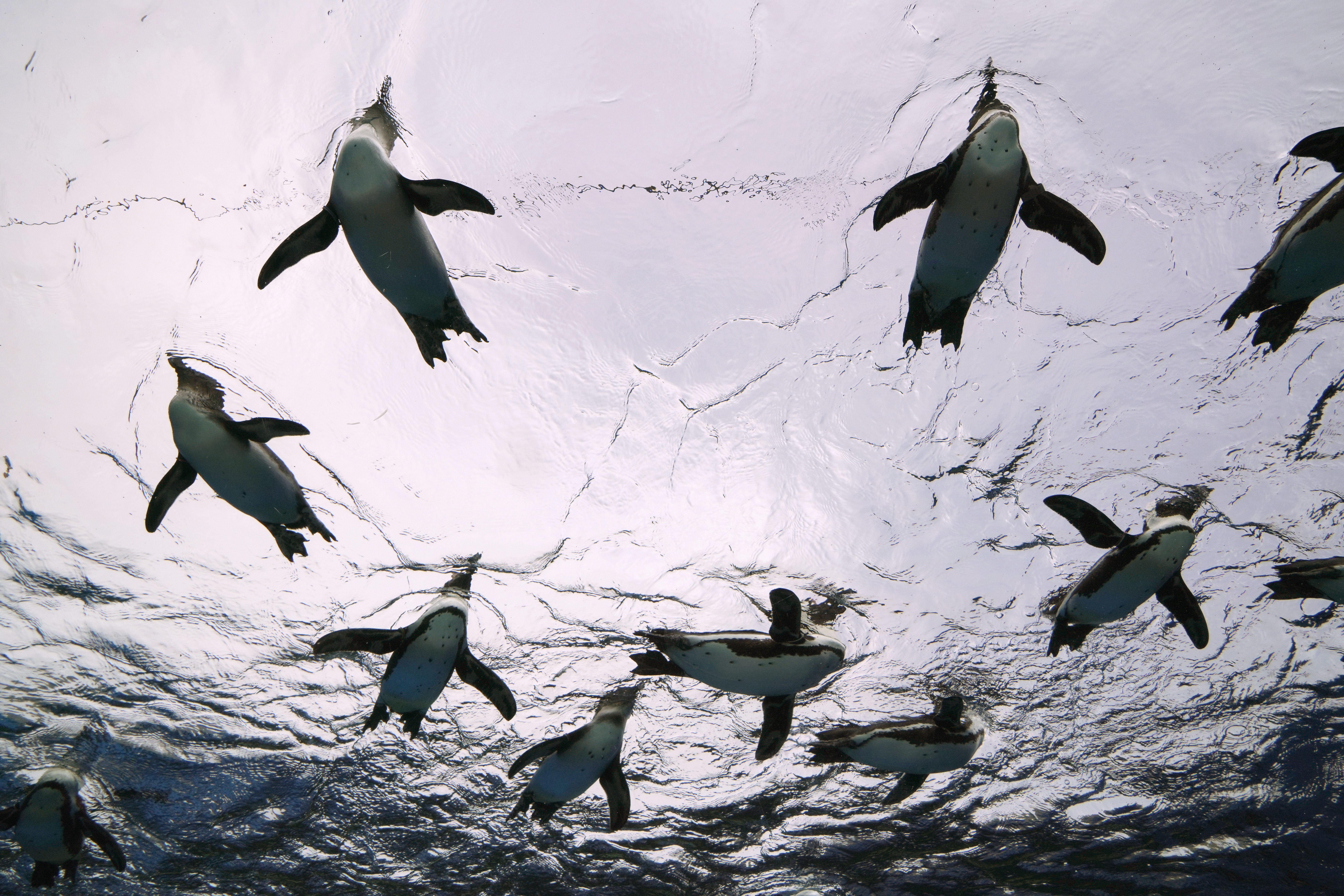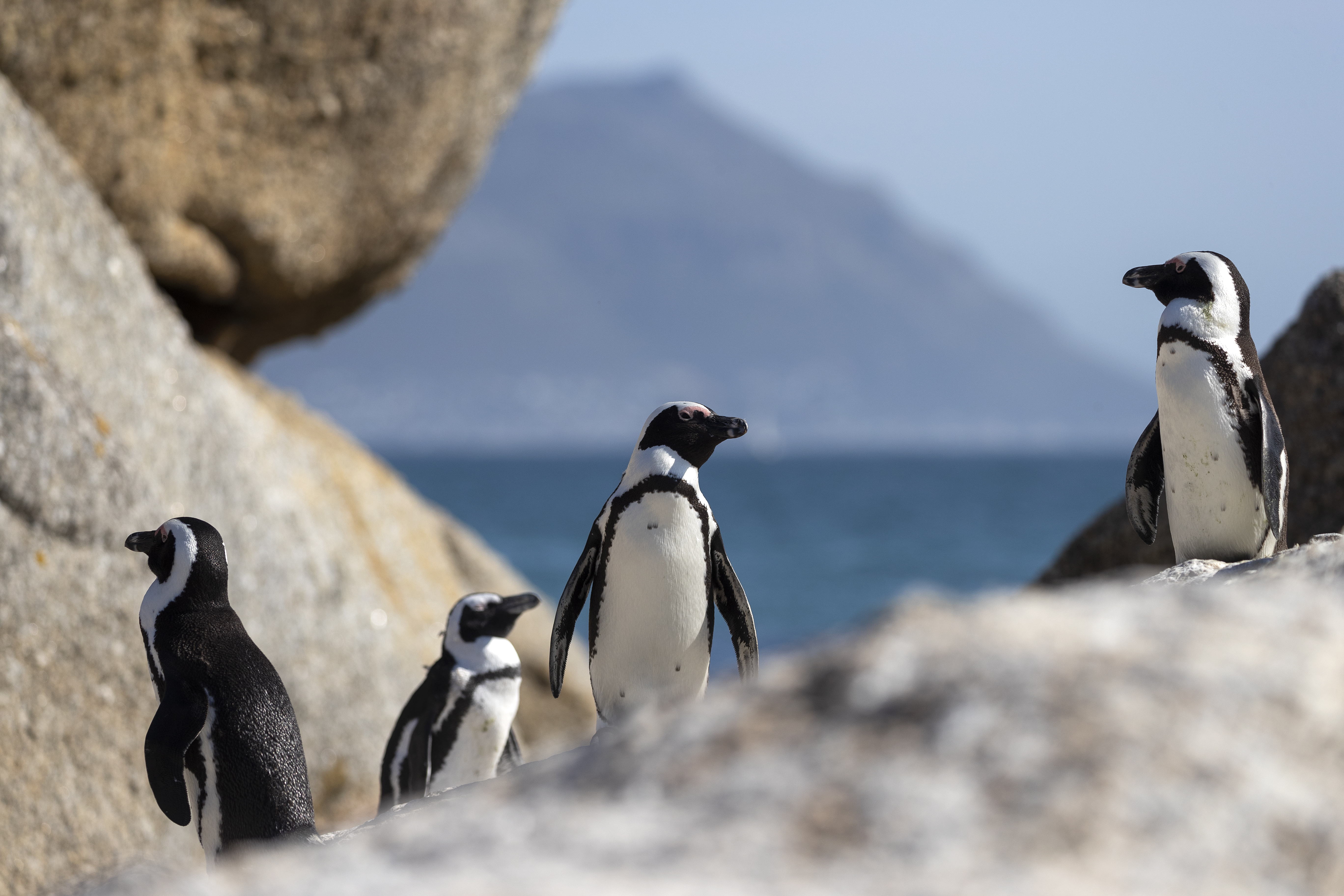ISLANDS OUT OF BOUNDS
Creecy limits fishing around key African penguin colonies in ‘deal’ for people and birds

Environment Minister Creecy has released her much-anticipated decision that has had the conservation and pelagic fishing sectors at odds for years: deciding to limit fishing around key African penguin colonies in an attempt to help stop the decline of the species which is set to be extinct in just more than a decade.
‘This is what my entire process for the last two years has aimed to do, to get the best deal that I can get under the current situation for people and for penguins,” said Minister of Forestry, Fisheries and the Environment Barbara Creecy during a virtual briefing in which she announced her decision on fishing closures around key African penguin colonies based on the much-anticipated expert review panel report.
Creecy said she had decided to implement fishing limitations in the waters around penguin colonies for a minimum of 10 years, with a review after six years of implementation and data collection, in an effort to stop the rapid decline of this endangered species.
There were more than one million breeding pairs of the African penguin 100 years ago. Now there are fewer than 10,000.
The iconic species is endemic to South Africa and Namibia, and if the situation is not addressed, scientists predict that with current rates of population decline (about 8% per annum since 2005), they could be functionally extinct by 2035.
What is causing this rapid decline is hard to pinpoint – conservation groups, including the Southern African Foundation for the Conservation of Coastal Birds (Sanccob) and BirdLife SA, believe a significant threat to colonies is prey availability, which is likely influenced by a combination of environmental variation and resource competition by the purse-seine fishing industry.
This was based on the groundbreaking, internationally recognised island closure experiment, which ran from 2008 to 2019 to see whether prohibiting pelagic fishing in a 20km radius of penguin colonies would have a positive effect on penguin populations.

The Island Closure Experiment prohibited purse-seine fishing around two pairs of penguin breeding islands: Dassen and Robben islands on the West Coast and St Croix and Bird islands in the Eastern Cape for over a decade. (Credit: Professor Andre Punt)
“This experiment sought to understand what, if any, benefits are derived from limiting fishing adjacent to penguin colonies. Competition for food is thought to be one among a set of pressures that are contributing to the decline of the African penguin population,” said Creecy.
The problem was that scientists interpreted the results of the experiment differently, because they used different models.
Dr Richard Sherley’s interpretation of the results found that “fishing closures improved chick survival and condition, after controlling for changing prey availability”, which the conservation organisations supported.
At the time, the South African Pelagic Fishing Industry Association (Sapfia) agreed that the current rate of species decline was a serious concern, but did not think that prey availability caused by consumer fishing was the biggest threat to the birds.
Their position was based on UCT Professor Doug Butterworth’s assessment of the experiment, which found that closing fishing around colonies had no significant effect on halting the decline in penguin numbers.

Minister Barbara Creecy. (Photo: Felix Dlangamandla)
Butterworth was contracted by the fisheries branch of the Department of Forestry, Fisheries and the Environment to do this research. He is with the Marine Resource Assessment and Management Group at UCT.
The assessments might say similar things, but Butterworth’s shows that closing fishing around the islands will, at best, increase the penguins’ annual growth rate only by about ½%, while Sherley’s assessment showed that it exceeds 1%.
Read more in Daily Maverick: Decision time: Will Barbara Creecy put an end to fishing around dwindling penguin colonies?
“Both parties, in the middle of last year, said to me, if you appoint an international panel of experts, and that international panel of experts that considers the island closure experiment… we will accept the outcome,” Creecy said during the briefing.
And so, in December 2022, the minister appointed an expert review panel, under Section 3A of the National Environmental Management Act, to assess the science related to managing the interactions between the small pelagic (anchovy and sardines) fishery and the conservation of African penguins.
“The independent panel report that was commissioned was a necessary step because of all the conflict among South African scientists and industry,” Professor Mandy Lombard, the South African Research Chair in Marine Spatial Planning at Nelson Mandela University, told Daily Maverick.
“Given unknown future climates and threats to both penguins and human livelihoods, the best actions will always be to take the precautionary approach.”

African penguins in a tank at Sunshine Aquarium in Tokyo, Japan, on 10 December 2019. (Photo: EPA-EFE / Kimimasa Mayama)
Expert panel’s review
“Today marks the end of the complex and lengthy process of stakeholder consultations in the quest to find science-based measures to protect the endangered African penguin from extinction,” said Creecy on Friday.
The panellists – who came from around the world and have several decades’ experience in science-to-policy matters in marine ecosystems, with a combined science publication list of several hundreds – analysed the impacts of fishing closures on the response variables monitored using generalised linear mixed-effects models.
They then converted the changes in the monitored reproductive parameters into changes in population growth rate.
What they found is that the results of the Island Closure Experiment for Dassen and Robben islands indicate that fishing closures around the breeding colonies are likely to have a positive impact on population growth rates.
“However, the impacts will be small – we estimated somewhere between 0.7% and 1.5% population growth rate,” said Professor Andre Punt from the University of Washington, who chaired the panel.
“I will remind folks that we were talking about an 8% decline [per annum]. So, we emphasise 0.5% to 1.5% growth rate is actually small relative to the reductions at those colonies.”
Creecy’s decision
Based on the panel’s report, Creecy decided to implement fishing limitations in the waters around penguin colonies on Dassen Island, Robben Island, Stony Point, Dyer Island, St Croix Island and Bird Island for a minimum of 10 years, with a review after six years of implementation and data collection.
As it stands, some areas around the major penguin colonies are already closed to commercial fishing for anchovy and sardine.
This is an interim measure that was put in place in September 2022 while the panel was working, and Creecy explained that the transition to implementing fishing limitations will continue with the current interim closures, while both the fishing industry and the conservation sector study the panel’s report.
“If there is agreement on fishing limitations over the next few weeks or months across these sectors, these will be implemented as they are agreed upon,” said Creecy, adding that there is some agreement on some colonies but there’s still negotiations going on around two or three of these colonies, and is giving the opportunity to two sectors to find a compromise by the end of the year.
“If no alternate fishing limitation proposals are concluded by the start of the 2024 Small Pelagic Fishing Season (15 January 2024) the current interim fishing limitations will continue until the end of the 2033 fishing season, with a review in 2030 after six years of implementation from the start of the 2024 fishing season.”
Conservation and fishing sectors response
BirdLife South Africa, which is part of the conservation sector group that took part in the deliberations of the Expert Review Panel on African Penguin Conservation as it relates to the impact of purse-seine fisheries restrictions, said it welcomed the release of the report and the minister’s decision around the timeframes for long-term closures.
“Provided that the ultimate closure extents that are implemented are aligned to the foraging habitat needs of these birds, this timeframe will afford African penguins a better chance of population recovery, especially given that [they] only start breeding at an age of three to six years,” it said.
However, the conservation sector group once again raised concerns around the interim closures and their adequacy in protecting the six remaining large African penguin colonies.

African penguins at Boulders Beach in Simon’s Town on 14 January 2020. (Photo: EPA-EFE / Nic Bothma)
“These concerns are especially relevant for colonies at Dassen Island, Robben Island and Stony Point, with the latter two colonies having the smallest proportions of penguin habitat protected by these restrictions,” they stated.
Mike Copeland, chairperson of Sapfia, which is part of the fisheries sector group, told Daily Maverick on Friday that it welcomed the minister’s decision and the public release export report, which it had not had a chance to read yet.
“We look forward to reading the report and also, in the light of the minister’s decision, to continuing discussions with our conservation colleagues to find a reasonable balance between the impact on the penguin population and the socioeconomic impact on fishing communities and the South African economy,” said Copeland.
Difficult balancing act
“The reason that it has taken us two years of negotiation to reach this point has been that we wanted to try and get the best possible outcome for both sectors,” said Creecy on Friday.
“We recognise that penguin tourism generates jobs… generates revenue, and is very important revenue that cross-subsidises conservation in other national parks.
“But we also recognise that the fishing industry generates revenue. And we recognise that the fishing industry supports both small and large fishers whose livelihoods are very important to the country, and of course, to the individual families and communities.”
Stopping fishing alone won’t save the penguins
While the expert panel concluded that there is likely to be a benefit to penguin conservation of closures of forage fishing around colonies, Punt emphasised that this “is only one part of a larger package of conservation measures. And in particular, simply implementing closures alone is unlikely to reverse the declines.”
The department agreed, highlighting that fishing limitations around breeding colonies only addresses one aspect in combating the high rate of penguin decline and is no miracle intervention.
“It must be seen as contributing its share to the other interventions in the penguin management plan, such as better managing land predators, habitat conservation and mitigating disease and pollution,” the department said.
Other measures in that the department has undertaken with conservation partners for the penguin management plan include control of predation (domestic animals, feral cats, kelp gulls and seals), rehabilitating oiled birds, population reinforcement (removing abandoned eggs, chicks and emaciated adults for rehabilitation and return), piloting artificial nests, habitat restoration and implementing biosecurity measures to limit the spread of avian flu.
“I believe that the report and my policy decisions here start a new cycle of refinement and assessment for both fisheries and penguin management. It is a material step in implementing our ambition on an ecosystems approach to sustainable ocean management and dynamic marine spatial planning,” concluded Creecy. DM



















 Become an Insider
Become an Insider
Probably one of two ministers actually doing their jobs not looking for tenders.
Where does the very rapid increase in the seal population fit into all this? Fishermen in False Bay are complaining that there are fewer and fewer fish because of the seal increase. Its all very well to talk of feral cats as predators but surely the seals are the main problem?